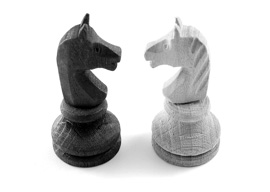
January 01, 2018

Source: Bigstock
It is no coincidence that the very founding example of Gamesmanship was also a piece of fake news. Potter and his associate Cyril Joad were matched at tennis against a younger and sprightlier pair. Joad simply asked the two honorable young bucks to reiterate whether a ball had been out—blinding them with the opposite possibility, and implicitly calling into question their honesty. The poison of self-doubt had been introduced, and they lost the match.
I would humbly posit that the Brits’—and the Russians’—moderate success in the field of spying rests on their superior mastery of Gamesmanship. Us Americans, like the Germans, lack the irony and essential suppleness of mind for espionage and its countering. To us, facts are facts; even if they are found on a corpse conveniently washed up on the shoreline of a neutral power. Not to the Gamesman.
Yet here I must add a warning. Although to us reality is the softest of metals, it can be softened too far. During the First World War, the British employed a painter by the name of Solomon J. Solomon to develop their camouflage efforts. Becoming obsessed with the potential of camouflage netting, he convinced the top brass that the Kaiser was hiding many battalions of tanks right under their noses. When the General Staff twigged to the fact that the poor dauber was disappearing into a delusional vortex of his own creation, he was quietly returned to the less jeopardous surroundings of the Royal Academy.
This cautionary tale is echoed in the closing scene of School for Scoundrels, a movie homage to Stephen Potter. When the apprentice Lifeman’s strategies are uncovered by the object of his affections, he abruptly recants them to declare his true love. Potter is aghast. “Not sincerity!” he cries. Yet the young student stands by his declaration—and gets his girl. As is often said about a gentleman, the Lifeman holds a powerful ace up his sleeve: knowing when to stop being a Lifeman. And the next card? Well, that’s obvious: when to start again.